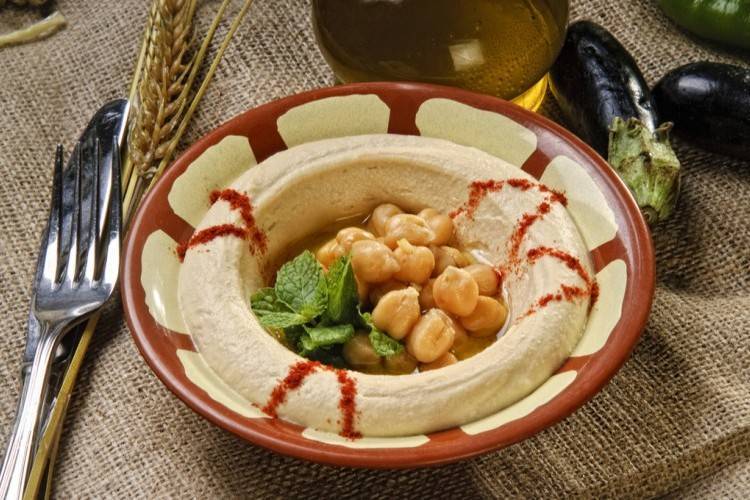Hummus is a type of legume known for its numerous health benefits, traditionally made from a blend of chickpeas, olive oil, tahini (sesame paste), lemon juice, and spices, making it rich in nutrients, according to the American "Time" magazine.
Elizabeth Matteo, a nutritionist at the Sargent Choice Nutrition Center at Boston University, states that "hummus generally provides more vitamins and minerals than many other spreads or dips," due to its content of calcium, folic acid, and magnesium.
According to the U.S. Department of Agriculture, hummus is naturally gluten-free and considered a healthy snack. Nutritionist Lindsay Pine from Los Angeles says that this mix of nutrients can also help stabilize blood sugar levels and prevent heart diseases.
Hummus contains what are known as "major nutrients" - healthy fats, protein, and fiber - which contribute to feelings of fullness and satisfaction, essential for maintaining a healthy weight. Like beans, lentils, peas, and other edible dry legume seeds classified as "legumes," hummus is a good source of protein and fiber compared to other plants. However, one cannot expect to get their daily dose of either, as two tablespoons of hummus contain only two grams of protein and one gram of fiber. Health guidelines recommend that adults consume about 50 grams of protein daily. For dietary fiber, the recommendations are about 25 grams daily for women and approximately 38 grams for men. Additionally, hummus is not a complete protein source, meaning it does not contain all the essential amino acids found in meat, fish, dairy products, and eggs.
Despite being rich in healthy ingredients, it is not advisable to consume an entire package in one sitting. Angela Lemond, a nutritionist and spokesperson for the Academy of Nutrition and Dietetics, notes, "It is relatively high in calories due to its tahini and oil content."
Pine adds, "A serving of ready-to-eat hummus contains about 70 calories per two tablespoons, making it very easy to overeat." She suggests buying pre-portioned packages or dividing a hummus package before consuming to keep portions in check.
One should also be mindful of what accompanies hummus. Pine advises, "Dipping too much pita bread or chips or salted crackers can easily spoil a healthy meal or snack."
Instead, she suggests dipping crisp raw vegetables, such as bell peppers, broccoli, celery, and carrots, or using a small quantity in salads. Matteo advises incorporating hummus into homemade salad dressings or over Mediterranean proteins such as falafel, fish, or chicken. If one wishes to enjoy hummus with bread, Matteo suggests replacing regular bread with whole-grain pita for more protein and fiber.
Many brands overuse sodium, so it’s important to check the nutritional label. Pine recommends choosing a brand with about 80 mg of sodium or less per two-tablespoon serving. It's also crucial to read the ingredients list and select a brand that uses ingredients as close as possible to the traditional recipe of chickpeas, tahini, garlic, olive oil, salt, and spices, avoiding those that add other oils, preservatives, or sugar.
Even better, Pine recommends trying to make hummus at home. You can use canned chickpeas, but if they are high in sodium, you can opt for a no-salt-added variety. Alternatively, you can use dried chickpeas after soaking and cooking them or try frozen green chickpeas (which derive their color simply from early harvest) available in the frozen products section at the supermarket.



